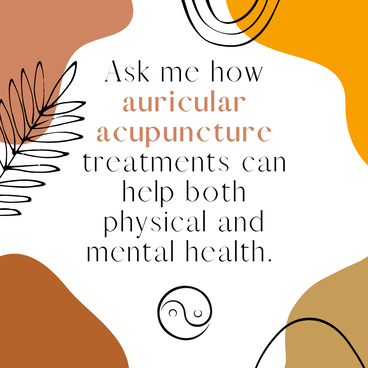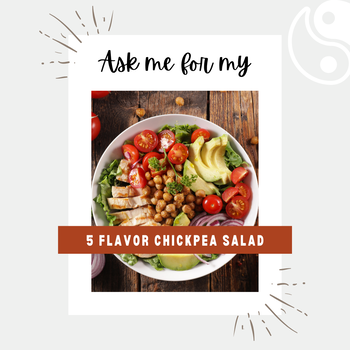 Acupuncturists understand the body as a complex system of energy systems, meridians, and organs. However, when an acupuncturist talks about an organ, like the spleen, heart, or kidneys, they are not referring to the physical organ that sits inside your body, but rather the energetic side of these organs. The energetic system is much bigger than just the physical organ and governs certain functions in the body on many levels. In Traditional Chinese Medicine (TCM) it is massively important to care for your heart. Why? Well for starters, the heart governs the ability to think clearly, sleep soundly, and maintain a good memory. Our emotional state is strongly influenced by how healthy or unhealthy our heart may be. A weak and deficient heart may create feelings of anxiety and mania, while also contributing to insomnia, forgetfulness, and lack of concentration. The heart is known as the “king of all organs”. Meaning, other organs will sacrifice all to keep the heart in motion; this involves giving away their energy and nutrient supply (commonly referred to as Qi). When it comes to your heart, what you eat matters. Follow these tips for heart-healthy eating:
Without a healthy heart, the body cannot function properly and the mind may be clouded and disconnected. Contact me for a consultation to see how acupuncture and Traditional Chinese Medicine can assist you with all of your heart health needs.  In a 2015 study published by the Journal of the American Board of Family Medicine, researchers found auricular acupuncture treatments, provided extended pain relief and people needed fewer dosages of pain medications. According to the study, a specific type of acupuncture, known as Battlefield Acupuncture (BFA) was used to treat 56 patients who were afflicted with an acute onset of a sore throat. All the participants were monitored for pain levels and dosages of medications taken at the 15-minute mark, six-hour mark, 24-hour mark, and 48-hour mark. In both areas, the group of participants who received Battlefield Acupuncture reported decreased pain levels and less need for pain medications. This study concludes Battlefield Acupuncture is associated with reduced levels of pain for up to 24 hours and decreased dosages of pain medication for up to 48 hours. A sore throat can be more than just an annoyance. It can be painful and costly when missing work becomes a necessity. Unfortunately, in the United States, many people cannot afford to take time off work for illness because they don’t get any paid leave. This can exacerbate the issue and sometimes make it even more severe, turning it into something like strep throat, which can lead to severe health complications. The typical treatment for a sore throat is non-steroidal anti-inflammatories like ibuprofen and possibly antibiotics when deemed appropriate. But Traditional Chinese Medicine treats a sore throat differently. In TCM there are two common causes of an acute sore throat, an attack by wind-heat or an attack by wind-dryness. There may be others also, but these are the two most common. This is how TCM differentiates the causes of the affliction. TCM theory states there are certain elements that can attack the body and create illness. Because a sore throat is almost always accompanied by some form of inflammation, there is usually heat generated. A wind-heat invasion occurs when the Wei Qi (pronounced “way chee”) is weaker than the invading force or pathogen. The Wei Qi is thought to be the defense that protects our bodies from outside forces. Think of Wei Qi as our immune system. When the Wei Qi is depleted or decreased, pathogens can break through and take root. With a wind-heat attack, there may be fever, chills, sweating, headaches, body aches, a cough, and a sore throat. A wind-dryness invasion is very similar to a wind-heat invasion, but there are more predominant signs of dryness, such as dry nose, mouth, throat, and cough. Regardless, the way to tackle either attack is by clearing heat and boosting the Wei Qi. This can be done fairly quickly through the use of acupuncture and herbs. Acupuncture and in particular, Battlefield Acupuncture can bring quick relief to those suffering from a sore throat. Battlefield Acupuncture involves placing needles at specific points in the ear. When these points are stimulated, they help to balance the flow of the body’s energy. In Chinese Medicine, the ear is a microsystem of the entire body, holding more than 200 acupressure points that help to enhance physical and mental healing. But how exactly do they work? Studies show using these points can inhibit certain neurotransmitters and inflammatory markers, as well as release endogenous opioids that fight off pain. As with any type of illness, the sooner somebody receives treatment, the sooner you can start feeling better. The same goes with an acute sore throat. If you feel a sore throat coming on, come see me for an acupuncture “tune-up”. You might just be surprised at the results. http://www.jabfm.org/content/28/6/697.full  Traditional Chinese Medicine (TCM) nutrition combines ancient wisdom with modern science. TCM nutrition is a holistic approach, which aims to balance all five flavors within most meals with one or two flavors being emphasized for therapeutic purposes. TCM nutrition for hypertension emphasizes bitter flavors, sour flavors, and energetically-cooling foods. TCM theory states the bitter flavor benefits the heart in moderation but an excess is harmful as it has a drying effect; for example, coffee is bitter. In moderation, coffee acts as a vasodilator increasing circulation but in excess, it can raise blood pressure and has a diuretic effect. Modern scientific research has discovered while the human genome has 25 bitter taste receptors 12 of these are expressed in the human heart. Foods with bitter flavors include romaine lettuce, dandelion, arugula, rye. Foods that combine bitter with pungency include citrus peel, radish, scallion, and white pepper. In TCM nutrition the pungent flavor can help disperse phlegm (e.g. plaque). Foods that combine bitter with sweet include asparagus, celery, tomatoes, lettuce, quinoa, and papaya. Lemon rind is bitter and sour; vinegar is also bitter and sour. Bitter flavors have a yin, or cooling effect, clearing heat in the body while encouraging a descent of Qi, which aids in the draining of fluids. For example, celery contains the phytochemical phthalides which relax arterial wall tissues to increase blood flow and thereby reduce blood pressure. The fiber, magnesium, and potassium in celery also help lower blood pressure and regulate fluid balance. Caution: according to TCM, those with a lot of dryness and/or bone disease should moderate their intake of bitter flavor. A tomato a day keeps the doctor away! The combination of lycopene, vitamin C and E, potassium, and folic acid in tomatoes make it a powerful food for heart health. The bitter flavor of tomatoes comes from the seeds; to reap the full benefit of tomatoes eat the seeds too. Heirloom tomatoes in the season have the most flavor, find the tastiest tomatoes at your farmer’s market or try growing your own. Chrysanthemum tea is very popular in Asia; it is helpful for headaches, dizziness, high blood pressure, chest pain, and also fevers. You can add chrysanthemum flowers to your morning green tea and in the evening combine it with chamomile tea for extra cooling benefits! TCM nutrition cautions against overdoing cold foods and drinks. Too much cold inhibits the digestive process. Drinking warm beverages and soups, as well as eating foods with a little pungency (chili pepper, garlic, ginger) causes the body to perspire slightly which naturally cools the body. 5 Flavors Chickpea Salad for Healthy & Happy Heart 15 oz cooked organic chickpeas (1 can) 1/2 c cup cooked quinoa or 1 cup brown rice (warm) 4 stalks celery, minced 6-12 cherry tomatoes, chopped in 1/2 or 1/4 8-12 Romaine lettuce leaves, chopped 2 TBSP red onion, minced Toss with a dressing made with: 2 TBSP olive oil 1 TBSP lemon juice + a little lemon zest (organic is best) 1 tsp grated ginger 1/2 tsp honey or agave 1-2 garlic cloves (minced or pressed) 1/8 tsp Himalayan or Sea salt (or to taste) fresh ground black pepper (to taste) Interested in more? Don't hesitate to contact me or book a consultation anytime, its my pleasure to be of service! ~Yours in Heart Healthiness. Rebecca Resources https://health.clevelandclinic.org/2015/04/celery-may-help-bring-your-high-blood-pressure-down/ Foster, S. R., Blank, K., Hoe, L. E. S., Behrens, M., Meyerhof, W., Peart, J. N., & Thomas, W. G. (2014). Bitter taste receptor agonists elicit G-protein-dependent negative inotropy in the murine heart. The FASEB Journal, 28(10), 4497-4508. Kastner, Joseph, MD, L.Ac, (2009) Chinese Nutrition Therapy, Thieme, Stuttgart and New York Pitchford, Paul (2002), Healing with Whole Foods: Asian Traditions and Modern Nutrition, North Atlantic Books, Berkeley, California Ried, K., Frank, O. R., Stocks, N. P., Fakler, P., & Sullivan, T. (2008). Effect of garlic on blood pressure: a systematic review and meta-analysis. BMC cardiovascular disorders, 8(1), 1. Willcox, J. K., Catignani, G. L., & Lazarus, S. (2003). Tomatoes and Cardiovascular Health. Critical Reviews in Food Science and Nutrition, 43(1), 1-18. |
AuthorsRebecca M H Kitzerow is a Licensed Acupuncturist practicing in La Center, Washington. With over a decade of experience she has won 10 Nattie consumer choice awards from Natural Awakenings Magazine since 2014. Archives
July 2024
Categories
All
|
Photos from Hey Paul Studios, BeGreen_Studio, Pawel Pacholec, 1950sUnlimited, toulupaliaqaz, Joelk75, OnTask, Robert Gourley, cnu_sports, Mitya Ku, wuestenigel (CC BY 2.0), FootMassagez, 401(K) 2013, Mariana Heinz, @EdwardTerry, fishhawk, liverpoolhls, torbakhopper, Boemski, dolomitibl, Driscolltheque, Dave n Laura, Vaping360, MVWorks, Life Mental Health, MVWorks, mikefats, Scot Nelson, jfl1066, wZa HK, ruurmo, Guadalupe Cervilla, Army Medicine, GViciano, torbakhopper, adrigu, Saulo Cruz, Ben Cumming, marniejoyce, kcxd, JasonCorey, kanenas.net, Live to Create Photography, gm.esthermax, Unique Hotels Group, Zenspa1, mysiana, Tobias Lindman, Leader Nancy Pelosi, Kristoffer Trolle, swanksalot, Bill Selak, Parker Knight, stimpsonjake, Gedankensprudler, SuperFantastic, tonynetone, marniejoyce, JeepersMedia, Illusive Photography, 'Ajnagraphy', Iban Torras, scotted400, gtall1, dvanzuijlekom, BPPrice, Skley, torbakhopper, Renato Ganoza, anka.albrecht, QUOI Media, Public Domain Photos, Instant Vantage, Victor Tongdee, Free Grunge Textures - www.freestock.ca, sportEX journals, Nadja Tatar, angela n., marniejoyce, MVWorks, Karolina Kabat, Thomas Fisher Rare Book Library, UofT, ginnerobot, tracilawson, haven't the slightest, My Photo Journeys, Pierre Willemin, Florena_Presse, SuperFantastic, colindunn, zzkt, TraumaAndDissociation, ER24 EMS (Pty) Ltd., shixart1985 (CC BY 2.0), marniejoyce, Tomás Fano, freestock.ca ♡ dare to share beauty, Archives New Zealand, Jaykhuang, airdrie.m, Go-tea 郭天, OnTask, wuestenigel, focusonmore.com, Disney | ABC Television Group, Andrew Gustar, Didriks, ConstructionDealMkting, charlywkarl, barnimages.com, Lel4nd, runwaypilates, michaelstephanfotografie, McLevn, TraumaAndDissociation, eLife - the journal, Lars Plougmann, wuestenigel, shixart1985, boviate, davis.steve32, kevin dooley, @the.photoguy (insta), frederic.gombert, Feathering the Nest, Victor Tondee, shixart1985, wuestenigel, Joe K Gage, kennethkonica
 RSS Feed
RSS Feed
